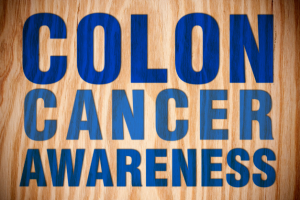Fight Colon Cancer! Schedule a Screening

Colorectal cancer screening for precancerous polyps is important to prevent cancer and is recommended every 10 years after age 45.
Each year, thousands of Illinoisans are diagnosed with colorectal cancer, and early detection through screening is key. Colorectal cancer is the second most diagnosed cancer. With males and females combined, it is also the second leading cause of deaths related to cancer.
Colorectal cancer, also referred to as colon cancer, is cancer that occurs in the colon or rectum. Abnormal growths called polyps can form in the colon and may turn into cancer over time.
“There is decline in incidence and mortality rates by 30 percent over the last 15 years due to improved colorectal cancer screening,” said Ranjodh Singh, MD, FACS, FASCRS, with Memorial Specialty Care General Surgery. “The goal of screening is to detect precancerous polyps and remove them before they turn into cancer. It also detects cancers in early stages when there are no symptoms so that it can be treated early.”
Risk Factors of Colorectal Cancer
Your risk of colorectal cancer increases as you age. Risk factors include inflammatory bowel disease, a family history of colorectal cancer or polyps or genetic syndromes linked to colorectal cancer. Lifestyle risk factors include:
- Lack of regular exercise
- Obesity
- Alcohol and tobacco use
- A diet that lacks fruits and vegetables is high in fat, low in fiber and high in processed meats
The most effective way to reduce your risk is colorectal cancer screening beginning at age 45. A colon cancer screening, called a colonoscopy, can find polyps so they are removed before becoming cancerous. You can also eat a balanced, nutritious diet, maintain a healthy weight, limit alcohol use and quit using tobacco products.
“Colorectal cancer, especially in the early stages, does not always exhibit symptoms,” said Nathan Pyle, DO, gastroenterologist for Memorial Specialty Care Gastroenterology. “You may have precancerous polyps or small cancer and not be aware—that’s why scheduled screening is so important. If symptoms are present, they can include blood in stool, stomach pain or aches that do not go away, change in size or shape of bowel movements and unexplained weight loss.”
Colorectal Cancer Screening
A screening tests looks for disease even if symptoms are not present. Colorectal cancer screening looks for precancerous polyps. If you are between 45 and 75 years of age, you should schedule colorectal cancer screening. A colonoscopy is the “gold standard” and most common type of colorectal cancer screening. It can both detect and even treat polyps at the same time.
Other tests that can detect and even treat polyps include guaiac-based fecal occult blood test (gFOBT), fecal immunochemical test (FIT), FIT-DNA test, flexible sigmoidoscopy, double contrast barium enema and CT Colonography. Speak to your doctor about the best screening option for you based on your family or health history.
Related Articles
Know Stealthy Symptoms of Stomach Cancer